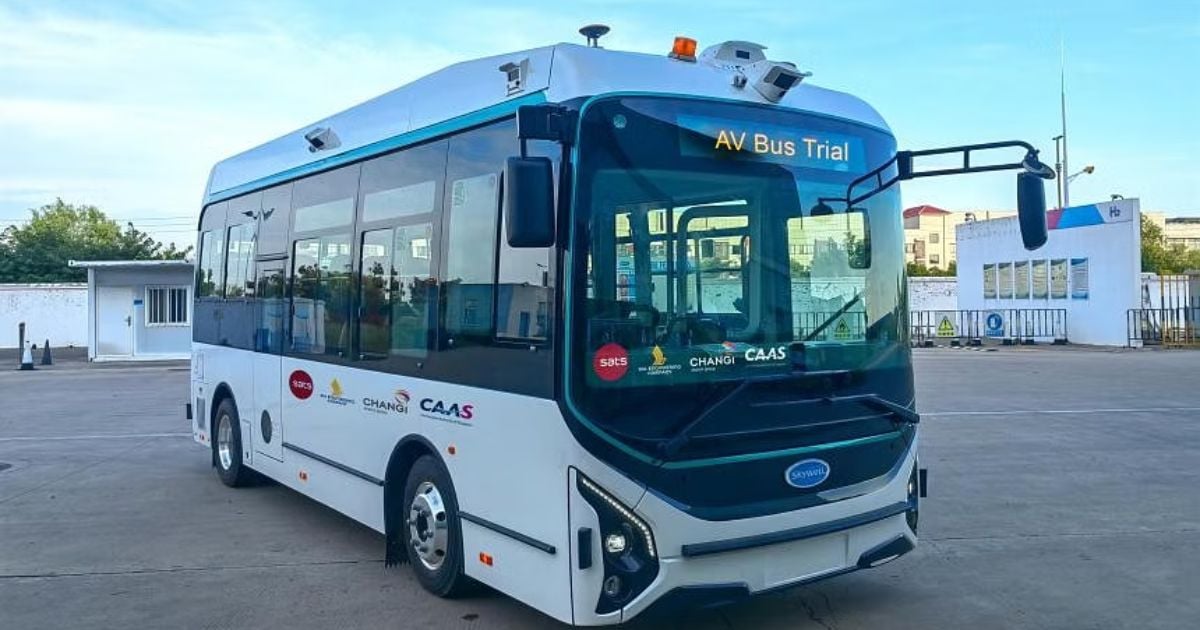When we were asked as kindergarten children about what the future would look like to us, I’m sure some of us would have snuck in “self-driving cars” somewhere in that conversation.
Well, the future is here!
Starting from the third quarter of 2024, a self-driving bus will be tested to transport workers around the airport’s restricted areas.
This two-year trial will kick off in phases and is all part of a grand plan to boost productivity through automation.
First things first, this isn’t a “let’s put a bus with no drivers out there and see what happens” situation.
The first phase, which will last about nine months, will keep things safe and controlled, without any passengers on board. This phase is all about ensuring the bus can navigate and perform its tasks without any human intervention.
Next up, the second phase will crank up the excitement by introducing the self-driving bus into the live operational environment, mingling with non-autonomous vehicles.
Of course, a safety driver will be on board throughout both phases – just in case the bus decides to go rogue, which we hope it won’t.
Who’s behind the wheel, though? (Technically, no one is, if we are talking about the bus…)
But the brains behind this project are Changi Airport Group (CAG), Singapore Airlines Engineering Company (SIAEC), and SATS Airport Services, a wholly-owned subsidiary of SATS Ltd.
They signed an agreement on 17 July 2024, to begin this trial, with some funding from the Civil Aviation Authority of Singapore (CAAS) through its S$280 million Aviation Development Fund.
Though the exact details are under wraps, it seems the bus in question might be from Chinese vehicle manufacturer Skywell. The imagery provided hints at it, but the specifics are still hush-hush.
These organisations aren’t just doing this for fun; they’re looking to make serious improvements. By automating routine driving tasks, airside workers can focus on more complex activities.
Plus, fewer vehicles on the airside mean less congestion and better road safety. It’s a win-win situation.
Let’s break it down. Today, Changi Airport has about 2,500 vehicles running around the airside – from minibuses to forklifts. Reducing this number with autonomous solutions can significantly cut down on congestion and boost productivity.
For example, driverless baggage tractors have been undergoing extensive testing since 2020, and these trials have shown promising results.
If you’re still doubtful, we are not the first airport to be doing this.
At the Hong Kong International Airport (HKIA), autonomous shuttle buses have been transporting airport staff since May 2023. They’re even planning to extend these services to visitors soon, allowing them to travel between Hong Kong Port and SkyCity
So, I’d say Singapore is on the right track.
This trial isn’t just about making life easier for airport staff. It ties into Singapore’s Smart Nation vision – a drive towards using technology to improve daily life, from transport to urban living.
By integrating autonomous buses, Changi Airport is not only improving its operations but also contributing to this broader goal.
Mr Yeo Kia Thye, Managing Director of Airport Operations Control at Changi Airport Group, expressed enthusiasm for testing autonomous buses with airport partners.
He highlighted that this trial complements existing automation efforts like driverless baggage vehicles and automated passenger bridges, aiming to boost productivity and innovate towards a futuristic airport.



